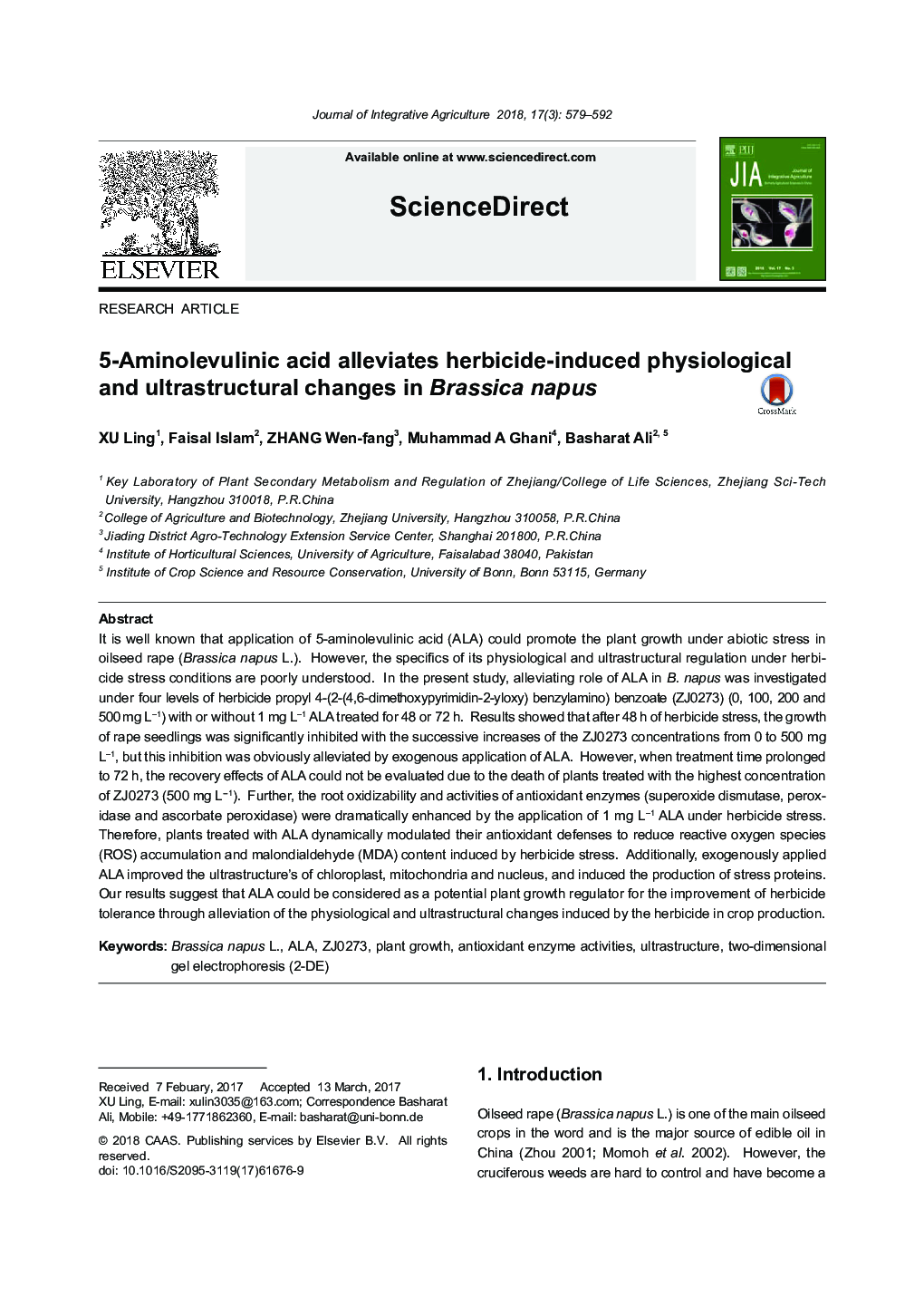| Article ID | Journal | Published Year | Pages | File Type |
|---|---|---|---|---|
| 8875674 | Journal of Integrative Agriculture | 2018 | 14 Pages |
Abstract
It is well known that application of 5-aminolevulinic acid (ALA) could promote the plant growth under abiotic stress in oilseed rape (Brassica napus L.). However, the specifics of its physiological and ultrastructural regulation under herbicide stress conditions are poorly understood. In the present study, alleviating role of ALA in B. napus was investigated under four levels of herbicide propyl 4-(2-(4,6-dimethoxypyrimidin-2-yloxy) benzylamino) benzoate (ZJ0273) (0, 100, 200 and 500 mg Lâ1) with or without 1 mg Lâ1 ALA treated for 48 or 72 h. Results showed that after 48 h of herbicide stress, the growth of rape seedlings was significantly inhibited with the successive increases of the ZJ0273 concentrations from 0 to 500 mg Lâ1, but this inhibition was obviously alleviated by exogenous application of ALA. However, when treatment time prolonged to 72 h, the recovery effects of ALA could not be evaluated due to the death of plants treated with the highest concentration of ZJ0273 (500 mg Lâ1). Further, the root oxidizability and activities of antioxidant enzymes (superoxide dismutase, peroxidase and ascorbate peroxidase) were dramatically enhanced by the application of 1 mg Lâ1 ALA under herbicide stress. Therefore, plants treated with ALA dynamically modulated their antioxidant defenses to reduce reactive oxygen species (ROS) accumulation and malondialdehyde (MDA) content induced by herbicide stress. Additionally, exogenously applied ALA improved the ultrastructure's of chloroplast, mitochondria and nucleus, and induced the production of stress proteins. Our results suggest that ALA could be considered as a potential plant growth regulator for the improvement of herbicide tolerance through alleviation of the physiological and ultrastructural changes induced by the herbicide in crop production.
Keywords
Related Topics
Life Sciences
Agricultural and Biological Sciences
Agricultural and Biological Sciences (General)
Authors
Ling XU, Faisal Islam, Wen-fang ZHANG, Muhammad A Ghani, Basharat Ali,
